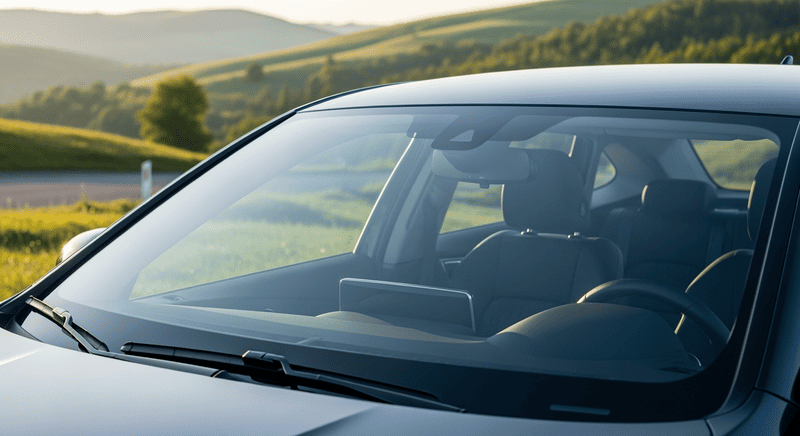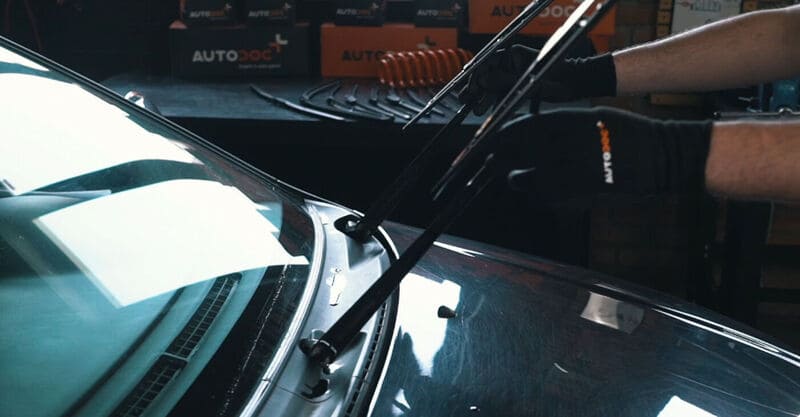Table of Contents
How to Reset Windshield Wipers: A Complete Guide for UK Drivers
When your windshield wipers stop parking in the correct resting position, knowing how to reset windshield wipers becomes essential for safe driving. The reset process involves removing the wiper arms, running the motor through a complete cycle, and reattaching the arms so they return to the proper parking position when switched off. This straightforward procedure can solve most wiper alignment issues without requiring professional assistance.
 BOSCH Rear wiper blade
330 mm, Flat wiper blade
BOSCH Rear wiper blade
330 mm, Flat wiper blade

 BOSCH Rear wiper blade
300 mm, Flat wiper blade
BOSCH Rear wiper blade
300 mm, Flat wiper blade
 BOSCH Wiper blade
1000 mm, Standard
BOSCH Wiper blade
1000 mm, Standard
 VAICO Wiper Arm Set, window cleaning
with cap, with integrated wiper blade, EXPERT KITS +
VAICO Wiper Arm Set, window cleaning
with cap, with integrated wiper blade, EXPERT KITS +
Why Windshield Wipers Lose Their Position

Your wiper system relies on precise timing and positioning to function correctly. The wiper motor includes an internal parking mechanism that should stop the wipers in the lower portion of the windscreen when turned off. However, several factors can disrupt this normal operation:
- Environmental factors play a significant role in wiper misalignment. Ice buildup during winter months can prevent wipers from completing their full cycle, causing them to stop mid-windscreen. Similarly, debris accumulation around the windscreen base can increase resistance and alter the motor's timing.
- Mechanical wear affects older vehicles more frequently. The wiper motor's internal components, including the parking switch and linkage system, can deteriorate over time. When these parts fail to communicate properly, the motor may not receive the signal to stop in the correct position.
- Improper maintenance also contributes to positioning problems. Using worn wiper blades that create excessive drag can strain the motor and affect its ability to return to the parking position accurately.
| Common Cause | Impact on System | Prevention Method |
|---|---|---|
| Ice/Snow buildup | Prevents full cycle completion | Clear windscreen before use |
| Worn linkage | Motor timing disruption | Regular inspection and lubrication |
| Debris accumulation | Increased friction | Clean windscreen base regularly |
| Electrical faults | Intermittent operation | Check fuses and connections |
Step-by-Step Wiper Reset Process

Before starting the reset procedure, ensure your vehicle is parked on level ground with the engine off and keys removed from the ignition. This process typically takes 15-20 minutes and requires basic tools.
Preparation Phase:
- Locate the plastic cover between the windshield and hood
- Use a flathead screwdriver to carefully remove the cover clips
- This exposes the wiper motor and linkage assembly
- Take note of the current wiper arm positions for reference
Removal Process: The wiper arms attach to splined shafts with central nuts. Use a socket wrench to loosen these nuts - typically 13mm or 15mm depending on your vehicle model. Pull the arms straight up from the shafts once the nuts are removed. Mark the driver side wiper arm position on the windscreen using removable tape to ensure proper realignment.
Motor Calibration: With both wiper arms removed, turn your vehicle's ignition to the accessory position and activate the wiper switch. The motor will run through its programmed cycle and stop in the service position - this is where the internal parking mechanism engages. Turn off the wipers and remove the key.
Professional Tip from AUTODOC Mechanics: "Always complete the full motor cycle during reset. Stopping the process midway can confuse the electronic control module and worsen positioning problems."
Reattachment and Testing: Position the driver side wiper arm parallel to the bottom edge of the windscreen, approximately 20mm from the rubber seal. The passenger side arm should align similarly but may sit at a slightly different angle depending on your vehicle's design. Tighten the central nuts to the manufacturer's specified torque - usually 15-20 Nm.
Vehicle-Specific Considerations
Different manufacturers incorporate unique features into their wiper systems. Understanding these variations helps achieve better results:
Ford vehicles often include a service mode accessible through the wiper stalk. Hold the stalk in the mist position for several seconds to activate this mode, allowing fine adjustments without mechanical disassembly.
German vehicles (BMW, Mercedes, Audi) frequently use more sophisticated electronic control systems. These may require specific procedures outlined in the owner's manual. Some models automatically calibrate when you replace wiper blades or perform system resets.
Japanese manufacturers typically design simpler mechanical systems that respond well to standard reset procedures. However, newer models with rain sensors may need additional calibration steps.
| Vehicle Type | Special Features | Reset Method |
|---|---|---|
| Ford models | Service mode via stalk | Electronic calibration |
| German cars | ECU-controlled systems | Manual + electronic reset |
| Japanese cars | Mechanical linkages | Standard procedure |
| Modern vehicles | Rain sensor integration | Sensor recalibration required |
Advanced Troubleshooting Techniques
When standard reset procedures fail to resolve positioning issues, additional diagnostic steps become necessary:
Electrical System Check: Inspect the wiper fuse in your vehicle's fuse box - a blown fuse can cause erratic motor behavior. Test the wiper switch by activating different speed settings and listening for consistent motor operation. Intermittent electrical connections often manifest as parking position problems.
Mechanical Component Inspection: Examine the wiper linkage for bent or damaged components. The connecting rods should move smoothly without binding or excessive play. Worn wiper arms can also affect positioning accuracy, particularly if the splined connections have loosened over time.
Expert Advice: "If your wipers still fail to park correctly after reset, the issue likely involves internal motor components or control module programming. Professional diagnosis prevents further damage to the system."
Maintenance Tips for Long-Term Performance
Preventing future positioning problems requires consistent maintenance practices:
Regular cleaning of the windscreen and wiper assembly removes debris that can interfere with proper operation. Use appropriate cleaning methods for wiper blades to maintain optimal contact with the glass surface.
Monitor wiper performance during different weather conditions. Squeaking or juddering often indicates developing problems that can affect parking positions if left unaddressed.
Consider upgrading to high-quality replacement blades when your current ones show signs of wear. Modern designs reduce motor strain and improve overall system longevity.
Testing Your Reset Results
After completing the reset procedure, thorough testing ensures success:
- Basic Function Test: Turn wipers on and off several times, confirming they return to the same parking position consistently
- Speed Variation Test: Check all wiper speeds (intermittent, low, high) to verify proper operation across all settings
- Rain Sensor Test: If equipped, verify automatic activation works correctly
- Park Position Accuracy: Measure the distance from wiper blades to windscreen edge - both sides should match within 5mm
When Professional Help Is Needed
Some wiper positioning issues require professional attention:
- Persistent Problems: If wipers continue parking incorrectly after multiple reset attempts, internal motor components may need replacement. Modern vehicles with electronic control modules sometimes require specialized diagnostic equipment to resolve programming issues.
- Physical Damage: Bent wiper arms or damaged linkage components often result from ice damage or impacts. These parts require precise replacement to restore proper geometry and function.
Successfully resetting your windshield wipers restores clear vision and prevents potential MOT test failures related to MOT test failures related to wiper blade. Regular maintenance and prompt attention to positioning problems keep your wiper system operating reliably for years of safe driving.
 BOSCH Rear wiper blade
280 mm, Flat wiper blade
BOSCH Rear wiper blade
280 mm, Flat wiper blade
 BOSCH Wiper blade
650 mm Front, Standard
BOSCH Wiper blade
650 mm Front, Standard
 BOSCH Rear wiper blade
240 mm, Flat wiper blade
BOSCH Rear wiper blade
240 mm, Flat wiper blade

 BOSCH Wiper blade
600, 475 mm, Beam
BOSCH Wiper blade
600, 475 mm, Beam
Frequently Asked Questions
Why are my windshield wipers not returning to rest position?
Wipers stuck in upright position typically indicate a malfunction in the motor's internal parking mechanism. A dirty windshield or debris can cause this trouble, preventing normal position return.
What to do if your windshield wipers won't turn off?
First, try pressing the steering wheel wiper controls to shift them to the off position. If wipers remain stuck, locate the fuse box and remove the wiper fuse to stop unwanted movement.
How do I access the wiper transmission for repair?
Remove the plastic cover between windscreen and hood to access the linkage. Watch for the motor location before attempting to detach components. Visit a mechanic if you hit complications during this process.
Can broken wiper arms cause parking position problems?
Yes, broken wiper arms prevent intended movement and must be replaced using simple steps. Diagnose the issue by checking if arms install correctly in their normal position before assuming motor trouble.
When should I replace wiper components instead of resetting?
Replace components when you observe consistent malfunction after multiple reset attempts. If wipers fail to deliver proper movement or remain stuck despite following reset procedures, replacement becomes necessary.










